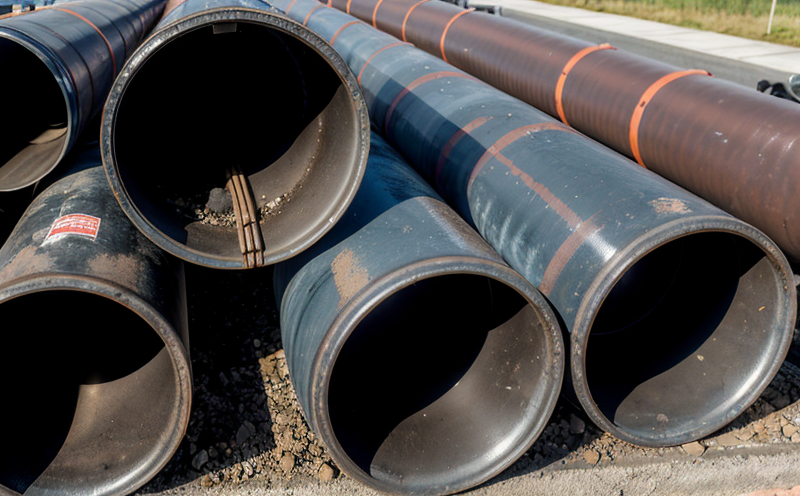DIN 8078 Testing of Polypropylene Pipes
The DIN 8078 standard is specifically designed to ensure that polypropylene pipes are suitable for use in various applications. This testing procedure focuses on evaluating the mechanical and chemical properties of these pipes, ensuring they meet stringent quality requirements.
Polypropylene (PP) is a widely used thermoplastic polymer known for its toughness, durability, and resistance to chemicals. In many industries, especially those involving plumbing systems, gas lines, and industrial piping, the performance and reliability of polypropylene pipes are critical. DIN 8078 provides guidelines to verify these properties through rigorous testing.
The test procedure outlined in DIN 8078 involves several steps to ensure that the pipes meet specific criteria for strength, flexibility, chemical resistance, and durability. These tests simulate real-world conditions under which the pipes are expected to function. For instance, hydrostatic pressure tests assess the pipe's ability to withstand high-pressure water or gas, while impact tests evaluate its resilience against mechanical stress.
Specimen preparation for DIN 8078 testing includes cutting appropriate lengths of the polypropylene pipe according to specified dimensions. The pipes are then subjected to various forms of stress and strain to determine their limits. The testing apparatus used is calibrated and validated to ensure accurate results, which are crucial for compliance with international standards.
The results from DIN 8078 testing provide critical insights into the performance characteristics of polypropylene pipes, enabling manufacturers and users to make informed decisions about material selection and application suitability. Compliance with this standard is essential in ensuring product quality, safety, and reliability across various sectors including plumbing, industrial processes, and chemical storage.
Understanding the context of DIN 8078 testing helps industry professionals appreciate its importance. For instance, in the plumbing sector, ensuring that polypropylene pipes can withstand water pressure without leakage is paramount for maintaining public safety. In industrial applications, resistance to chemicals ensures prolonged operational efficiency and reduces maintenance costs.
By adhering to DIN 8078, manufacturers demonstrate their commitment to quality and reliability, which enhances customer confidence and market reputation. This standard also plays a crucial role in ensuring that polypropylene pipes meet regulatory requirements and industry expectations.
Applied Standards
| Standard Name | Description |
|---|---|
| DIN 8078 | Polypropylene pipes for pressure applications - Determination of mechanical and chemical properties. |
Benefits
- Ensures product quality meets international standards, enhancing customer confidence.
- Aids in compliance with regulatory requirements and industry expectations, avoiding potential legal issues.
- Facilitates smoother supply chain management by ensuring consistent product performance across different locations.
Competitive Advantage and Market Impact
- Enhances brand reputation through adherence to stringent testing protocols, attracting more clients.
- Reduces the risk of product failure in critical applications, thereby increasing customer satisfaction and loyalty.
- Promotes innovation by providing a framework for continuous improvement in material properties and manufacturing processes.





